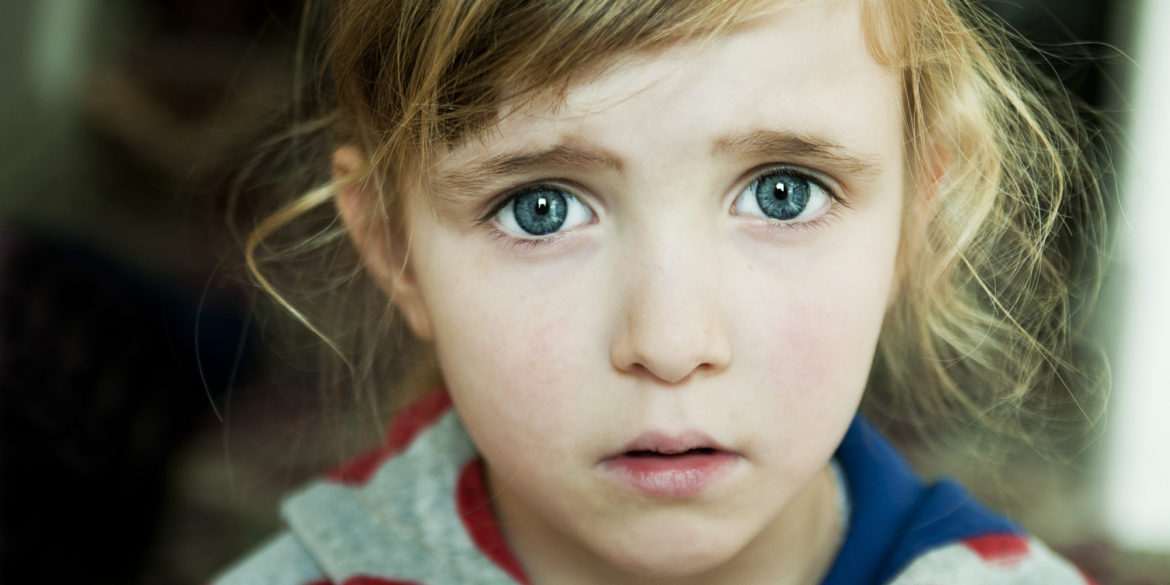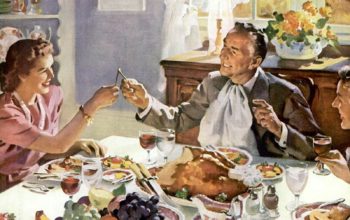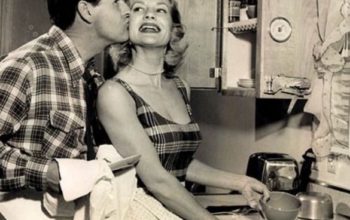22 Pieces of Advice for Parents of the ‘50s, Still Valuable Today
Modern parents often believe that the parenting advice from the past no longer applies today. It is generally understood that the moms and dads of the 1950s were ill-informed hardcore disciplinarians who did not show affection and love to their kids and pushed them to grow up excessively fast.
“In my day” and that something “didn’t do [them] any harm” are perhaps the two of the most notable expressions of older generations when describing their earlier life.
That was a time when parents and children had mutual respect and trust for one another. Expectations were set and understood. Children knew what they had to do, and had their freedom only after they would do it.
Now, some of the advice would be strange today. On the other hand, this list is comprised of very valuable information for the parents of today, so let us go through them in detail.
-
Air That Baby

During the 1950s, parents usually owned large prams with plenty of room for the baby to stretch out when sleeping. They would put their babies outside, which is not safe today. However, there is no reason why your baby cannot sleep next to an open window, dressed appropriately for the current season. Babies who sleep in the fresh air sleep longer and deeper. They are also happier than those in other surroundings.
-
Eat as a Family
During this decade, family members almost never ate different food at different hours. Unless the father worked late hours, he would expect to dine with his wife and children when he comes home. It promoted harmony in the family. The general premise is the same today, however family members tend to be very different with their food. Some are vegetarians or vegan, while others are on some strict diet. They do not always eat at the same time. Families should still eat together as much as possible as it relieves stress and children will be closer to parents are avoid obesity.
-
Do not let them be Picky
Parents of the 1950s were raised during the end of the Great Depression, as well as WW II. Their families had it rough at times, and they were thankful for any food they had, no matter the ingredients or amount. Naturally, if their own kids turned out to be “fussy children,” parents did not have patience. The child was to stay at the table until they finish their plate. No extremes should be implemented, but a firm discipline does not hurt. Toddlers use eating as a weapon to get whatever they wish. If you are a pushover, or maybe try to make more meals to have them eat their food, they will become picky and slowly narrow down foods they like, and not eat anything else, leading to all sorts of problems.
-
Begin a Routine ASAP
This is great advice. When thinking about the period, people believe that moms ran the households with military precision and scheduling. These would “train” their kids to eat, drink, play, and sleep on a timetable that works best in the sense of managing everything in a day. The baby was also expected to comply. People are more relaxed today, and do not enforce a food schedule on kids. A routine has its benefits however. Planning of any sorts is much easier, and it is better to know what comes during which part of the day. Sleeping and eating routines should be as present as possible.
-
Good Sleep is Learned
Within reason, children need to be taught how and when to sleep. Back then, they were too rough about it, and children would go to sleep at exactly the same time each day. If they did not feel like it, too bad. If fed, dry, and not in pain, they had to “cry it out” until they fell asleep. The general principal is solid parenting. A routine every night combined with a quiet and dark atmosphere will make your child know what time it is. The baby will learn how to distinguish the day and night time.
-
Give your Kids Responsibility
During the middle of the last century, children had responsibilities from a young age. They also had some degree of freedom foreign to us currently. They would go to the store with a note and some cash, at five years old and the store a couple of blocks away. This is less and less the case, but kids should have responsibility from a young age. Things like “if you take toys out to play with, you should put them away after“, pouring water in the pet’s bowl, or putting their clothes away, or just in the laundry bin. It will teach responsibility for their actions, and cut down the work you and your partner have to do.
-
Teach them Manners

Children were raised to be more polite and to “mind their manners” in the ‘50s, and not just “please” and “thank you”, but giving up seats on the bus, allowing elders in front of them, boys removed their hats when talking any female or indoors, and for the children to wait for their turn. People do not value most of these today. They are still valuable and polite, and they should be present with children.
-
Ensure Consequences
Swift punishments were common back then. There were consequences for stepping out of line and misbehaving. Spanking was widely present in the 1950s as the punishment for naughty and rude children. Today, parents avoid it as much as possible. The idea of punishment should remain however, and consistency is key. Remain firm, as if you skip a punishments, they will do it more often.
-
Don’t Ignore your Relationship

There were lots of advice for wives on how to treat the husband, like resting for 15 minutes, then touching up the hair and makeup, freshening up and look your best for the returning head of the household. This is extreme and unwelcomed in today’s society. However, parents should always find time for themselves, and not forget about their partner and relationship. Many couples unfortunately grow apart when children arrive. The relationship needs to become healthier, not worse.
-
Don’t be a Martyr

Mothers were taught not to become slaves of the new baby. This is still true today. Nobody in the household should suffer because a new member arrived. You should still do things for yourselves as well. Learn to say no, especially if you already did enough and the baby is well taken care of. Putting your feet up at the end of the day is okay, and the child will not miss an additional story before bed.
-
TV is Ok
Back in the day with limited technology and high prices, only about six million households owned a TV. There were also not that many channels to choose from. They watched kids shows, and were not interested in “adult” programs, which did not have that much violence, sex or curse words like today. TV is still find today, in normal amounts as everything else of course. Pay attention to what they watch, and allow them all the freedom after their chores.
-
Stay Away from Crowds in the Winter
The grandmas of today were encouraged to go out in any weather with their babies back in the day. One exception were crowded places during the coldest periods of winter, great advice for today as well. A plethora of various bacteria and viruses rule during this time, so what good is a crowded mall or a busy event for a baby. Try to avoid large groups in general with your young children, especially in wintertime.
-
Don’t let Anyone Kiss your Baby
Parents who do not let others to cuddle and kiss their baby are called overly cautious or neurotic helicopter parents. In fact, they follow great old advice for keeping the baby safe. Babies were not cuddled and kissed like today. Especially by people outside of the closest family. Different illnesses were present in society in the mid-fifties, like the unusually severe polio epidemic and constant measles, mumps, chicken pox, and German measles outbreaks. There are plenty of other illnesses today unfortunately, so keep your baby safe while still very young.
-
Keep Sick Children at Home in Bed
Parents of the ‘50s did not ignore symptoms in their children and made them go to school if were sick. They did quite the opposite, as kids were honest and if feeling sick, parents believed them. They would go to bed at the first sign of sickness, wrapped warmly and comfortably next to an open window for some fresh air. Simple bed rest, with no TV, phones or over-pampering. Just rest, food and drink rich in nutrients. Parents need to stop sending sick kids to school today, as it is the breeding ground for sharing germs.
-
Pillows are a No No

Moms back then knew what scientist claimed to have discovered recently. Not for the same reasons, but still. It is familiar that too many soft pillows or crib decorations may obstruct babies’ breathing, potentially leading to deadly consequences. Be extra careful and do not put a lot of these around your baby.
-
Be Selective about Foods
One of the mother and baby magazine said not to give babies “tea, coffee, beer, or wine of any kind, pickles, fried foods, pie, lolly-pops, candy of any kind, nuts, pancakes, berries, ice cream cones, rich cakes, puddings, or meat gravies”. Most are common sense, but still, parents give kids the same food they eat. Be smart about baby food, it exists for a reason. Instant and fast food, nuts and tiny candies are not a good idea for young children and babies.
-
“Bubble” your Baby
This is in relation to burping your baby both before and after a feed. It was almost equated with a science, and thought of as extremely important. Today’s formula for babies minimizes the amount of air baby gets while eating. Breastfed babies also need it less than bottle-fed babies. Still, it is a good habit to pick up. Burp your baby before a feed, to minimize a potential mess with yourself covered in half-digested milk.
-
Make your own Toys
Resources were limited after the war, and factories were getting back on track. Toys were not a priority, so parents attempted to make their own for their kids. Knitting, sewing and household items did the trick. This is not necessary today, but teaching kids to be crafty is still valuable. Scour the Internet for tutorials and DIYs. Every kid needs real toys, but this can and will be fun for your kids at times.
-
Get on the Baby Train
Parents were constantly warned that babies will become monsters who will take up their time and money, unless handled carefully. Do not scream on the kid, and do not put things out of reach. Just give them a calm “no” until they listen. Any instruction should be handled like this, gentle and firm. Combined with trust, responsibility and consequence system, your parenting experience will be great. The whole atmosphere in the house will be pleasant and healthy.
-
Dad is a Parent too

Although moms were predominantly in charge of raising kids while dads and husbands worked and provided for them, this advice did exist in the ‘50s. A magazine from 1957 says, “the day is over when father was ‘The Forgotten Man.’ Young moderns know that Father’s role in bringing up a child is every bit as important as the mother’s.” A great sentence, as the mother and father are of equal importance for the upbringing of a child. They should work together and support each other in the parenting roles.
-
Exercise is Important
Look at this passage published back in 1954: “The happy child plays while he learns. He also learns while he plays. . . . I have emphasized over and over that exercise must be done in the spirit of fun. You can give your child no better preparation for adult life than this zestful enjoyment of the exercise and development of his body.” Such a forward thinking example of parenting. Exercise should be an integral part of your child’s upbringing. Fun and active playtime is key, which will set them up for a lifetime of healthy habits.
-
Go Breastfeeding

Regarding the last item on our list, an article from 1958 reads: “You may have heard a great deal about the disadvantages of breastfeeding. A lot of these stories are old-wives tales.” This is when the first formulas became available and widely used by parents. Only 30% of mothers breastfed. They were told their milk was “too thin” and that babies cry because they are not satisfied with it. Mothers also constantly listened to things like “destroying their bodies and depriving their husbands of the opportunity of enjoying them”. This is essential advice for today as well, as taboos and controversies about breastfeeding still exist.



